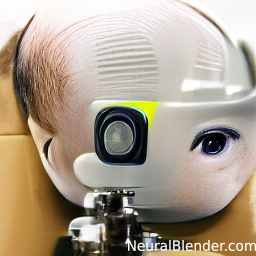Steven Harnad provides an embodied version of the Turing Test (TT) in Other Bodies, Other Minds by using a robot instead of a computer, calling it the Total Turing Test (TTT). He states that to be truly indistinguishable from a human, artificial minds will require the ability to express embodied behaviours in addition to linguistic capacities (Harnad 44). While the TT implicitly assumes language exists independently from the rest of human behaviour (Harnad 45), the TTT avoids problems arising from this assumption by including a behavioural component to the test (Harnad 46). This is due to our tendency to infer other humans have minds despite the fact individuals do not have direct evidence for this belief (Harnad 45). This assumption can be extended to robots as well, where embodied artificial agents which act sufficiently human will be treated as if it had a mind (Harnad 46). Robots which pass the TTT can be said to understand symbols because these symbols have been grounded in non-symbolic structures or bottom-up sensory projections (Harnad 50–51). Therefore, embodiment seems to be necessary for social agents as they will require an understanding of the world and its contents to appear humanlike.
These sensory projections are also known as percepts or qualia (Haikonen 225), and are therefore required for learning language. While Harnad’s intention may have been to avoid discussing metaphysical properties of the mind, for the sake of discussing the TTT, his argument ends up providing support for the ontological structures involved in phenomenal consciousness. Although I didn’t mention it above, he uses this argument to refute Searle’s concerns about the Chinese Room, and the reason he is successful is due to the fact he is identifying an ontological necessity. Robots which pass the TTT will have their own minds because the behaviours which persuade people to believe this is the case are founded on the same processes that produce this capacity in humans.

Works Cited
Haikonen, Pentti O. ‘Qualia and Conscious Machines’. International Journal of Machine Consciousness, Apr. 2012. world, www.worldscientific.com, https://doi.org/10.1142/S1793843009000207.
Harnad, Stevan. ‘Other Bodies, Other Minds: A Machine Incarnation of an Old Philosophical Problem’. Minds and Machines, vol. 1, no. 1, 1991, pp. 43–54.